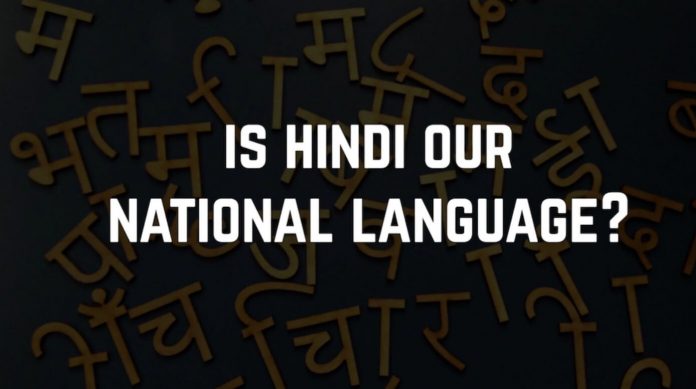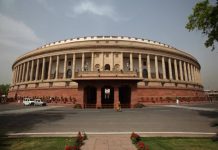This article is written by Ronika Tater from the University of Petroleum and Energy Studies, School of Law. In this article, she discusses the various provisions and case laws. Also, provide why there is a need to uphold the democratic values and principles of the constitution.
Table of Contents
Introduction
B.N. Rau stated that “one of the most difficult problems in the framing of India’s new constitution, will be to satisfy the demand for linguistic provinces and other demands of a like nature”. This issue agitated and plagued the Constituent Assembly for its three-year lifetime. The constituent assembly did not, but tried hard to resolve this issue as there was strong pressure and demand for the reorganization of the provinces on a linguistic-cum-cultural basis, affecting the content of the Constitution. With the inauguration of the Constitution in January 1950, the assembly was relieved of this issue as they refused to include the formation of linguistic provinces while constitution-making. The Constitution of India is silent on the issue of the national language. Thus, Hindi is one of India’s regional languages and not our national language.
History of the linguistic provinces issue
The members of the Drafting Committee and the Congress leadership were trying from the start to resolve the linguistic state issue within the federal system, while at the same time protecting the interest of minorities. While framing the constitution, there was a demand for linguistic provinces. Considering the situation, Maulana Abdul Kalam Azad stated “to give a commanding position to the Centre in the new constitutional set up” as it was the only way of maintaining Indian solidarity. This formation of the linguistic provinces was strongly opposed by other members of the committee. Also, there is no evidence that they supported a strong Centre for this particular issue. It was stated by Dr. Rajendra Prasad that the relations of the provinces with the union would be the same regardless of the provinces constituted. Neither the formation of linguistic provinces nor the growth of sub-nationalism since independence affected the harmony between the state and the union. But the growth of linguism (such as Tamil-speaking in Madras and Telugu-speaking in Andhra Pradesh) may prove to be a threat to Indian unity.
The issue of linguistic provinces was only a nebulous effect on the drafting committee but it frequently appeared as an issue in the constituent assembly. It was seen that the issue entered the assembly by the policy of the congress. The Nehru Report mentioned a recommendation of provincial redistribution according to which the ‘main considerations must necessarily be the wishes of the people and the linguistic unity of the area concerned’. Hence, each linguistic group believed that after independence the promises would be fulfilled. In the end, due to the conflicting interest of the drafting committee members on the particular issue, Dr. Rajendra Prasad stated that he believed in the solidarity of India rather than belonging to any particular province, group, or community. During the inauguration of the constitution, it did not include the formation of linguistic provinces.
Language provisions in the Constitution of India
The Constitution was adopted on 26 January 1950 and it stated that Hindi in Devanagari script and English were designated as the official languages of the union for a period of fifteen years as per Article 343. Consequently, there was strong opposition from the southern states, where the Dravidian language was spoken. The legislation preferred to continue using English, which was more acceptable. Unlike Hindi, it was not associated with any particular group. Moreover, the Constitution is silent on the issue of a national language. It provides the freedom to choose any of the religious languages mentioned under the eighth schedule of the Constitution, which entails 22 regional languages including Hindi. Like Bengali, Gujarati, Marathi, Odia, or Kannada, Hindi is limited to specific regions in the country.
While reading Article 343, the confusion and scope of falsehood begin to arise and also due to the lack of an explicit statement that India has no national language. Further adding to the confusion, Article 351, a directive order for the development of the Hindi language, states that the government has to promote the spread of Hindi, to serve as a medium to express India’s composite culture. The Constitution allows the states to adopt one or more languages as the official language. For instance, the state of Uttar Pradesh has designated Hindi as its official language mentioned under the Uttar Pradesh Official Language (Supplementary Provisions) Act, 1969.
Other provisions
-
Article 29 (Protection of interest of minorities)
Article 29 entails the right of the citizen to conserve their language, script, or culture and no citizen shall be denied admission in any educational institution based on religion, race, caste, language.
-
Article 30 (Right of minorities to establish and administer educational institutions)
Article 30 provides the right to all minorities, based on religion and language, to establish their choice of educational institution and the state shall not discriminate while granting aid.
-
Article 120 (Language to be used in Parliament)
According to Article 120, business in Parliament shall be transacted in Hindi or English. However, if any member is not adequately fluent in any of the official languages he may express himself in his mother tongue.
-
Article 344 (Commission and Committee of Parliament on official language)
Article 344 provides for establishing a committee and it shall be the duty of the committee to examine the recommendations of the commissions and report to the President on the progressive use of the Hindi language. Hence, the provisions of the Constitution highlights the progress towards the use of the Hindi language.
-
Article 345 (Official language or languages of a State)
Article 345 provides for the legislature of a State to adopt any one or more languages in the respective State or use Hindi for all official purposes unless the legislature of the State provides the English language to be used for official purposes.
-
Article 346 (Official language for communication between one State and another or between a State and the Union)
Article 346 provides official language to be used in the Union for the official purpose or communication between one State and another or between a State and the Union. Moreover, if two or more States agree that the Hindi language should be the official language for official purposes or of communication.
-
Article 347 (Special provision relating to language spoken by a section of the population of a State)
According to Article 347, if the President on demand is satisfied that a substantial proportion of the population of the State desires the language spoken by them as recognised by the State, he may direct such language to be a recognized language in the State.
-
Article 348 (Language to be used in the Supreme Court and the High Courts and for Acts, Bill, etc.)
Article 348 states that unless otherwise provided by the Parliament, all proceedings in the Supreme Court and every High Court, the authoritative texts, bills introduced in the parliament, acts passed by the parliament or all the orders, rules, and regulations should be in the English Language.
-
Article 350 (Language to be used in representation for redress of grievances)
Article 350 entails special directives, that every person shall be entitled to submit for the redress of any grievance to any officer or authority of the Union or of the State in any language.
Why is there a debate on the Hindi language
India is a diverse country comprising individuals from different backgrounds, religions, communities, groups, cuisine, culture, etc. There is a popular slogan which states that in India, language changes every few kilometres just like water. According to Census 2011, Hindi is the language of less than 44 percent of Indians and the mother tongue of only around 25 percent of the people in India. Therefore, the choice of a national language for India is difficult and has often witnessed violence and heated debates.
In a multilingual country like India, the government in power has at times declared that ‘Hindi’ is the national language of India to raise their political agenda. For instance, in 2017, Vice President Venkaiah Naidu stated that Hindi is the national language of India in a public address. In the same year, the government in power attempted to amend Hindi as a language of the United Nations (UN).
The latest debate has come from a draft of the National Educational Policy, 2020 initiated by Prime Minister Narendra Modi. In the draft policy, the government had recommended mandatory teaching of Hindi with English and the concerned regional language in non-Hindi speaking states. However, later on, the government revised the draft policy and declared it non-mandatory.
Difference between national language and official language
A ‘national language’ is representative of the country, its cultural heritage, and history. It is the language of a political, cultural, and social unit. It is used as a symbol of national unity and gives the expression that the citizens of the country know and speak the specific language and the country is known all over the world by the language. On the other hand, an ‘official language’ is used for all the official purposes of the union and the state governments such as the nation’s court, parliament, administration, government speeches, and other official work, etc. A country can have more than one official language. However, there can only be one national language. We know that India is a multi-linguistic country, hence stating Hindi as its national language is against the law and also against the interest of the regions where Hindi is not spoken or not known to the regional people.
Case law
As we know that the Constitution is silent on the issue of the national language, hence the task to determine whether Hindi is a national language, falls on judicial precedent. There are two arguments on the subject, that is, on the point of unity and the interest of minorities.
- On one side those favouring Hindi are of the view that a national language would unite the people and the country and on the other side, non-Hindi speaking people are of the view that they would be excluded and would be at a great disadvantage.
- The critics are of the view that in a diverse country no one language can be spoken by the majority of the people. In the case of Amrutlal Popatal Parmer v. Chief Secretary (2013), the court rejected the petition on the point that Hindi was the national language of India.
Fact
Public interest litigation was filed under Article 226 for undertaking all administrative work in Hindi, which is the national language of the country as per the petitioner. They also stated their concern under Section 3 of the Official Language Act, 1963, due to which the Hindi language has been neglected and the English language has been mostly used for the official purpose of this country, which is a foreign language.
Issue
Whether any legal right or any fundamental right of the petitioner is being violated by the action of the Government in using the English language for the official purpose.
Judgment
While rejecting the petition, the court analysed all the relevant Articles in the Constitution such as Articles 120, 343, 344, and 351 and Section 3 of the Official Language Act, 1963. The court observed that the Constitution provides that the English language may be continued to be used in addition to the Hindi language for all the official purposes of the Union and the Parliament. Also, there is no violation of the petitioner’s legal right or any fundamental right because of the non-use of the Hindi language for all the official purposes of the Union.
Conclusion
In multilingual countries like India, the government often declares the Hindi language to be the national language for political reasons. It is essential to note that declaring the national language is not going to bind the society to achieve the aims of an independent nation. Language is an integral part of the Indian culture and hence, prioritising Hindi over all other languages spoken in India would take away its very essence of diversity.
References
Students of LawSikho courses regularly produce writing assignments and work on practical exercises as a part of their coursework and develop themselves in real-life practical skills.
LawSikho has created a telegram group for exchanging legal knowledge, referrals, and various opportunities. You can click on this link and join:
 Serato DJ Crack 2025Serato DJ PRO Crack
Serato DJ Crack 2025Serato DJ PRO Crack









 Allow notifications
Allow notifications


